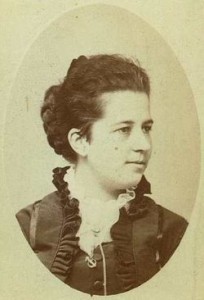 Much of the literature written on death finds a way of expressing it, and its meaning to the author, through symbolism and figurative language. However, some of it is written in simple terms, and this doesn’t mean it’s any less influential. The poem “A Song of Living,” by Amelia Burr, is one such piece of literature:
Much of the literature written on death finds a way of expressing it, and its meaning to the author, through symbolism and figurative language. However, some of it is written in simple terms, and this doesn’t mean it’s any less influential. The poem “A Song of Living,” by Amelia Burr, is one such piece of literature:
“Because I have loved life, I shall have no sorrow to die.
I have sent up my gladness on wings, to be lost in the blue of the sky.
I have run and leaped with the rain, I have taken the wind to my breast.
My cheeks like a drowsy child to the face of the earth I have pressed.
Because I have loved life, I shall have no sorrow to die.
I have kissed young love on the lips, I have heard his song to the end,
I have struck my hand like a seal in the loyal hand of a friend.
I have known the peace of heaven, the comfort of work done well.
I have longed for death in the darkness and risen alive out of hell.
Because I have loved life, I shall have no sorrow to die.
I gave a share of my soul to the world, when and where my course is run.
I know that another shall finish the task I surely must leave undone.
I know that no flower, nor flint was in vain on the path I trod.
As one looks on a face through a window, through life I have looked on God,
Because I have loved life, I shall have no sorrow to die.”
Each stanza focuses on a different reason that Burr is not upset that she must die. In the first, she reflects that she has enjoyed life to the fullest. She has been so happy that she has “sent up…gladness on wings” (2), because she has relished her time on Earth. She has soaked up all it has to offer, including nature, and she conveys this with the use of upbeat terms like “leaped” (3).
In the next paragraph, the poet muses on how she has lived a very fulfilling life.  She beautifully articulates that she has spent her time with the love of her life: “I have kissed young love on the lips, I have heard his song to the end” (6). She has had lasting friendships, which she communicates with the simile of a “seal” (7) that has cemented it and made it permanent. She has witnessed firsthand, or “known,” (8) the fruits of her labor, and she has made it through dark and difficult times; she powerfully states, “I have…risen alive out of hell” (9).
She beautifully articulates that she has spent her time with the love of her life: “I have kissed young love on the lips, I have heard his song to the end” (6). She has had lasting friendships, which she communicates with the simile of a “seal” (7) that has cemented it and made it permanent. She has witnessed firsthand, or “known,” (8) the fruits of her labor, and she has made it through dark and difficult times; she powerfully states, “I have…risen alive out of hell” (9).
Finally, in the last stanza, Burr remarks that everything she has done has held meaning for her, and that she is ready to go. She has given “a share of [her] soul to the world,” (11), and she maturely accepts that there are “surely” (12) things that have to be left “undone” (12). The author acknowledges that everything that happened in her lifetime happened for a reason, and that it was all worth it: “I know that no flower, nor flint was in vain on the path I trod” (13).
And the refrain, the line that, not accidentally, repeats throughout the poem, echoes her overall viewpoint: “Because I have loved life, I shall have no sorrow to die” (15). Burr asserts that the key to coming to terms with death is by truly enjoying your life, no matter where it may take you. Even if you find yourself in “hell,” (9), you need only remember that you’re lucky to be alive, and that life should be savored. Though this very concept tends to be what keeps people from being willing to die, if we recognize that this happiness is what will carry us forward, we have passed the test, and we are ready to move on.

 “A Song of Living,” by Amelia Burr
“A Song of Living,” by Amelia Burr


 The Spiritual Symbolism of Cardinals
The Spiritual Symbolism of Cardinals
 Meaning-Focused Grief Therapy: Imaginal Dialogues with the Deceased
Meaning-Focused Grief Therapy: Imaginal Dialogues with the Deceased
 Flawed Kidney Function Test Discriminated Against Black Patients
Flawed Kidney Function Test Discriminated Against Black Patients















Perfect.
Report this comment
We agree ; – ) 💜
Report this comment